
Inside the Secrets of Quantum HDR Photography

Inside the Secrets of Quantum HDR Photography
‘Hello,
What is Quantum HDR, and how does it affect TV screen quality? Please explain to me”.
One of the fascinating aspects of technology is the never-ending innovation. However, TV terminologies can be quite confusing, that even new technologies in the industry become hard to understand.
Quantum HDR is one of the latest technologies in the TV industry that many folks still find too hard to understand.
Perhaps you’ve heard about Quantum HDR once or twice, but you still didn’t know what the technology is all about, worry less because you’ve come to the right page to find out the unknown.
Here, we’ve covered all you need to know about Quantum HDR. So it’s advisable that you read this article till the end.
Part 1: What is Quantum HDR
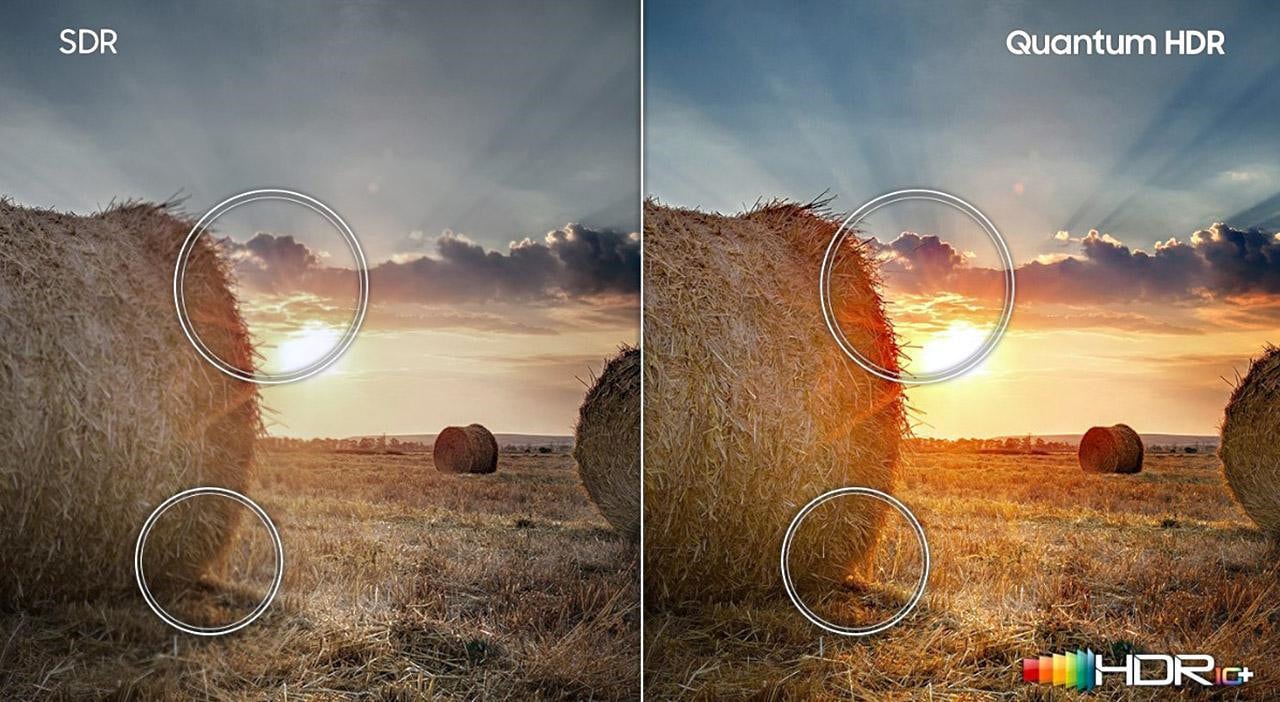
Just as the name suggests, Quantum HDR is a combination of two amazing technologies namely, ‘Quantum Dots and HDR (High dynamic range).
“Quantum HDR refers to TVs with a QLED screen that’s compatible with the HDR technology.”
As we all know, HDR is used to capture more details and colors in images. So, when used in TVs, it usually affects the color accuracy and contrast ratio in images. Therefore, causing an increase in color accuracy and contrast ratio.
With the presence of HDR in TVs, bright colors become brighter, and details of pictures become more visible. Yes, it does this by increasing the maximum value for three base colors ‘Red, Green, and Blue’ - this causes colors that originated from the mix of the base colors to be brighter and more saturated.
Quantum, on the other hand, means a TV uses Quantum Dot technology - a new technology used in TV screens by industry brands like Samsung to capture more details and colors in images.
Screens made of Quantum Dot technology are also referred to as QLED. Yes, this is because such screens tend to display LED lights that use a unique black light different from other TV screens. So, as a result, TVs with such screens usually have higher brightness and contrast while preserving details of the picture.
Part 2: What is Quantum HDR 16x, 24x, 32x, 40x?
Quantum HDD 16x, 24x, 32x, and 40x are known as peak brightness multipliers of a TV screen. Although there’s clear information about these peak brightness multipliers at this point, we could tell it’s another marketing strategy relating to how many metadata streams a TV’s processor would process to make the image displayed on its screen more detailed. For example, since the base brightness of a TV is 100 units, a Quantum HDR with a 16x peak brightness multiplier would have a peak brightness of 1,600 units, Quantum HDR with a 24x peak brightness multiplier would be 2,400 units, and so on.
In all, we could say the overall brightness of a Quantum HDR 16x, 24x, 32x, and 40x increases as the peak brightness multiplier increases.
Part 3: Is there a difference between Quantum HDR and HDR?
Even though Quantum HDR is a new technology, a lot of people still mistake it to be the same as HDR. So, to help clear the air on the difference between these two techniques, we’ve explained their features in the comparison table below;
| Quantum HDR | HDR | |
|---|---|---|
| Meaning | Quantum HDR are TVs with QLED screen that’s compatible with HDR technology | HDR is an advanced technology that improves the quality and display signals of HDR TV (High dynamic range television) |
| Technology | - | High dynamic range televisions |
| Brightness | Much Brighter | Much brighter |
| Best for | Televisions | camera |
| Cost | $1000+ | $20,000+ |
Part 4: How to Make and Display Your HDR Video on Quantum HDR TV?
Truth be told, your TV won’t be able to use HDR unless you’re watching HDR-ready media - It needs a source. In this case, you need the Filmora video editor to create HDR video and display it on your TV.
You might ask, ‘What is Filmora?’ Filmora is a simple editing tool that supports all essential video editing tools that video creators can always employ not just to edit videos but also to create HDR videos and display them on Quantum HDR TV.
Filmora boasts over 900 in-built video effects, AI portraits, Chroma key, Mask, and lots more that ticks boxes all around. Besides, there are also features like Auto Synchronization, Audio Ducking, and Noise Detection to help you edit the audio aspect of your HDR videos.
Free Download For Win 7 or later(64-bit)
Free Download For macOS 10.14 or later
Key Features
- Supports a wide range of audio and video editing functionalities.
- Easily align video and audio captured with different cameras in the same scene automatically.
- Apply color correction settings in different scenes with just one click.
- Create attractive HDR videos with high-quality built-in plugin effects like AI Portrait, NewBlueFX, Filmstock, and Boris FX.
Part 5: Stepwise guide to Create and Display Your HDR Video on Quantum HDR TV using Filmora
Make sure you download and install Filmora video editing software on your computer from the official website before proceeding with the steps.
Step1 Start Filmora Program. Once you start the Filmora program on your computer, click on ‘New Project’ from the main interface, then under ‘Select Project Aspect Ratio’ click the drop-down icon and select the preferred aspect ratio for your HDR video.
Step2 Import HDR Video . Now upload HDR video to Filmora by clicking on ‘Import’ from the top left corner of your screen.
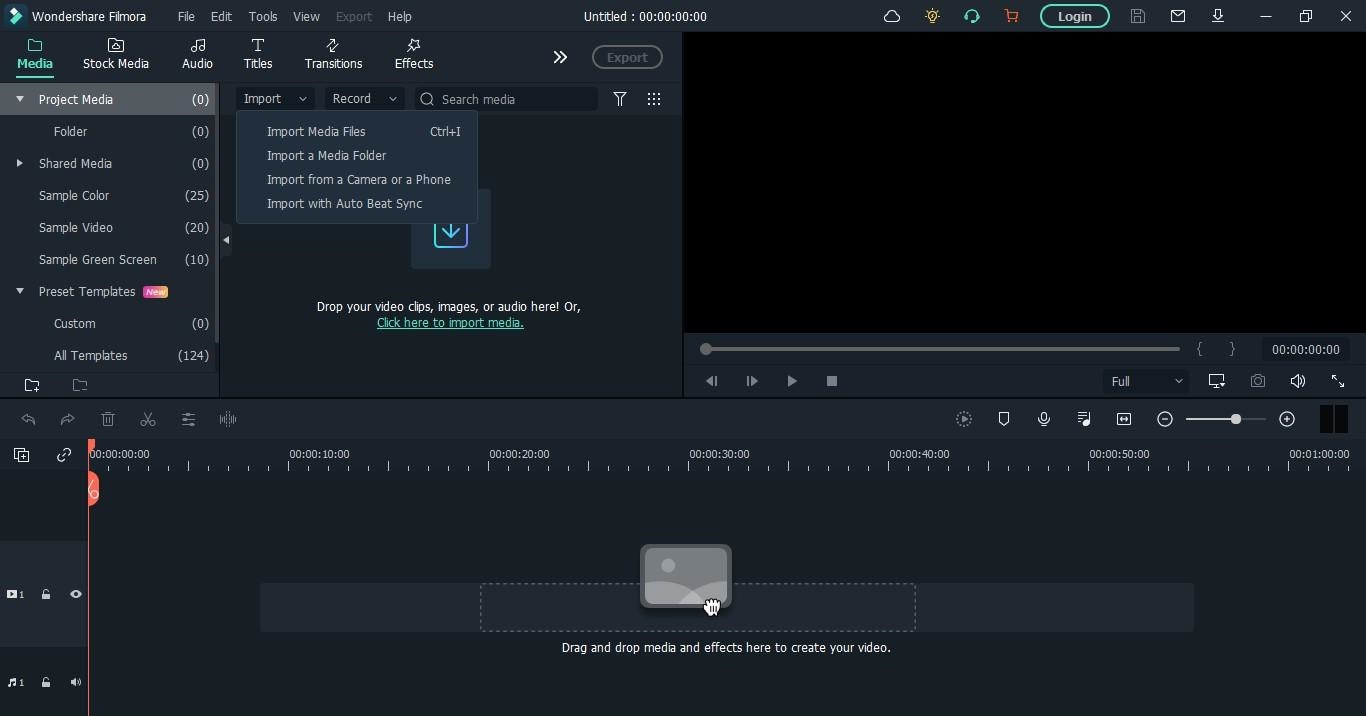
Step3 Edit HDR Video. Next, you need to click on ‘Register’. Then edit the uploaded HDR videos as oed requirements. You can cut, trim, apply of effects, apply sound, etc.
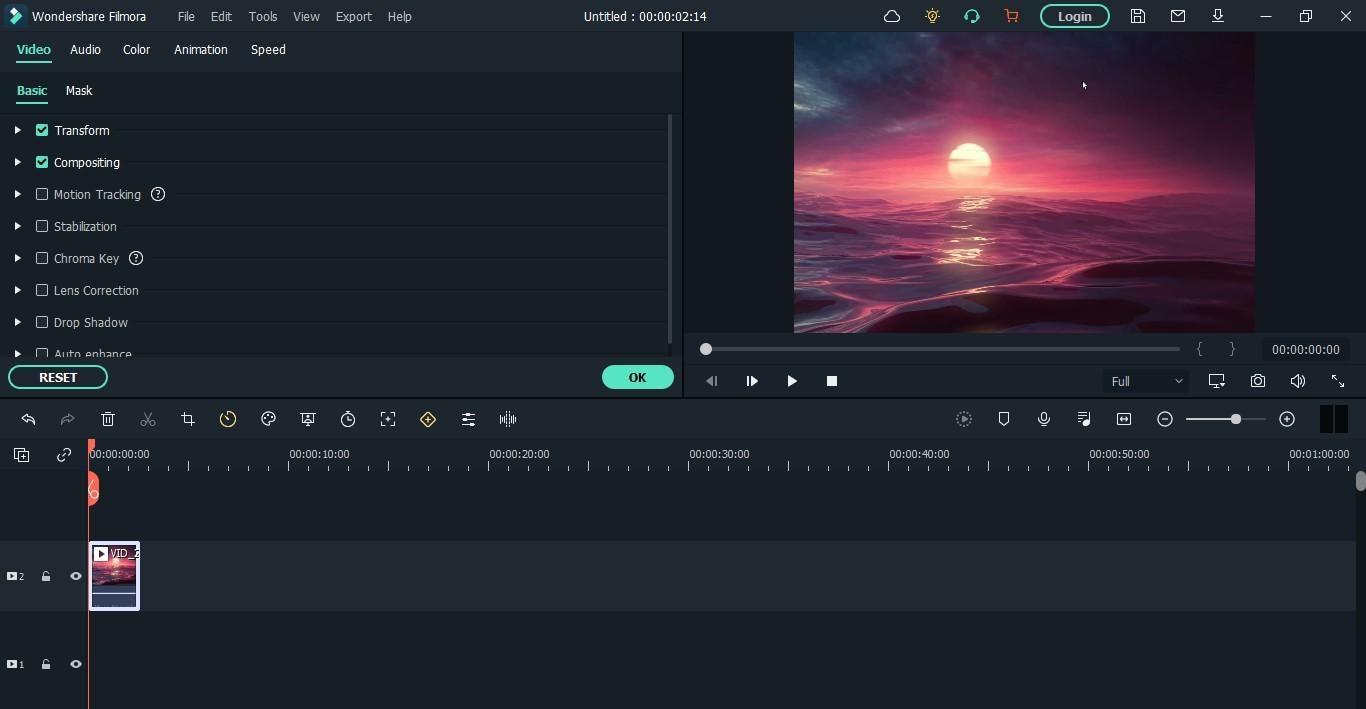
Step4 Share & Export Edited HDR Video
After you’ve completed the video editing task, locate the Export option and click on it > from the pop-up, select the output format, Quality, and edit other settings of your video. to store your video.
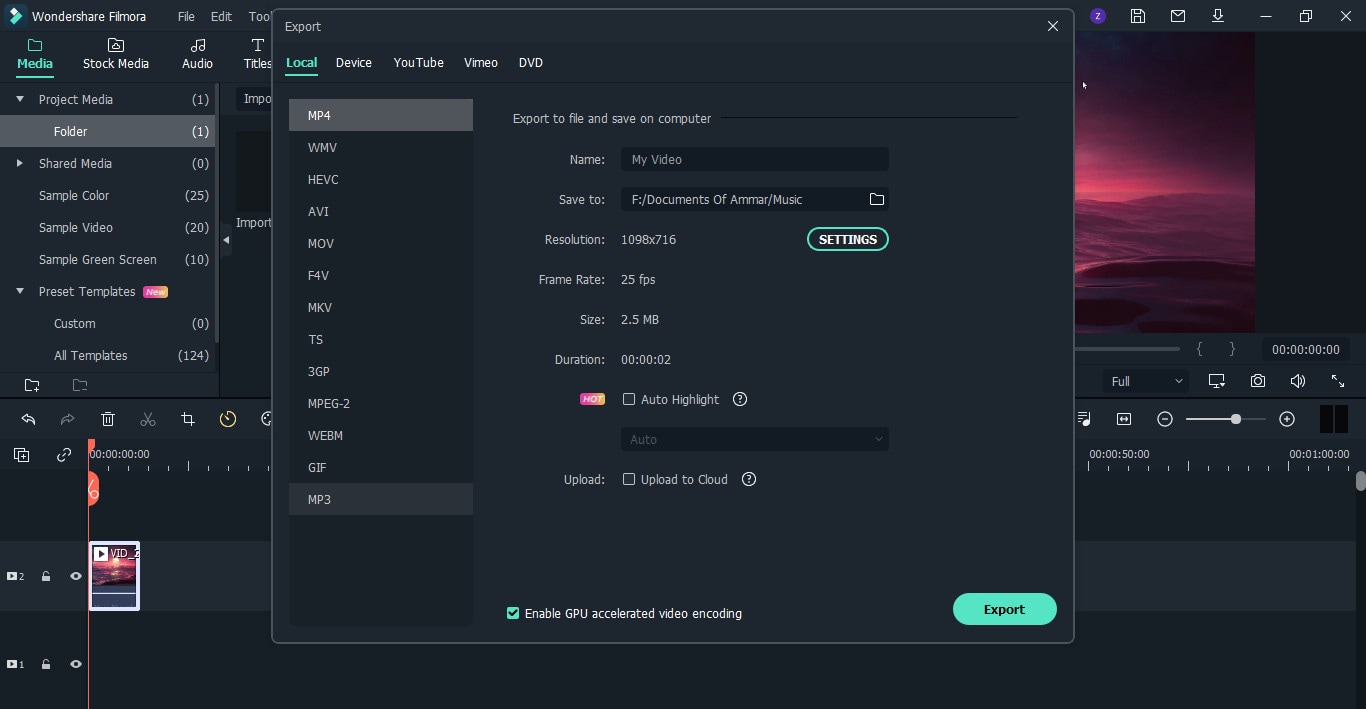
Also, click the ‘Export Color Space’ drop/down icon to change HDR video output quality (default quality is SDR - Rec.709). Then click on the ‘OK’ button once you’re done to finalize the operation.
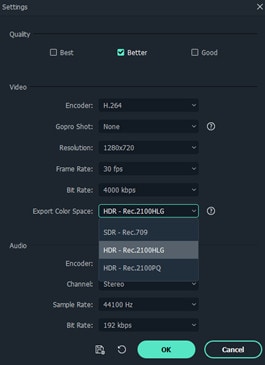
Step5 Now, to watch the HDR video on your Quantum HDR TV, just turn ON your TV and go to ‘Settings’.
Step6 Under settings, find ‘Picture’ and select ‘Expert Settings’.
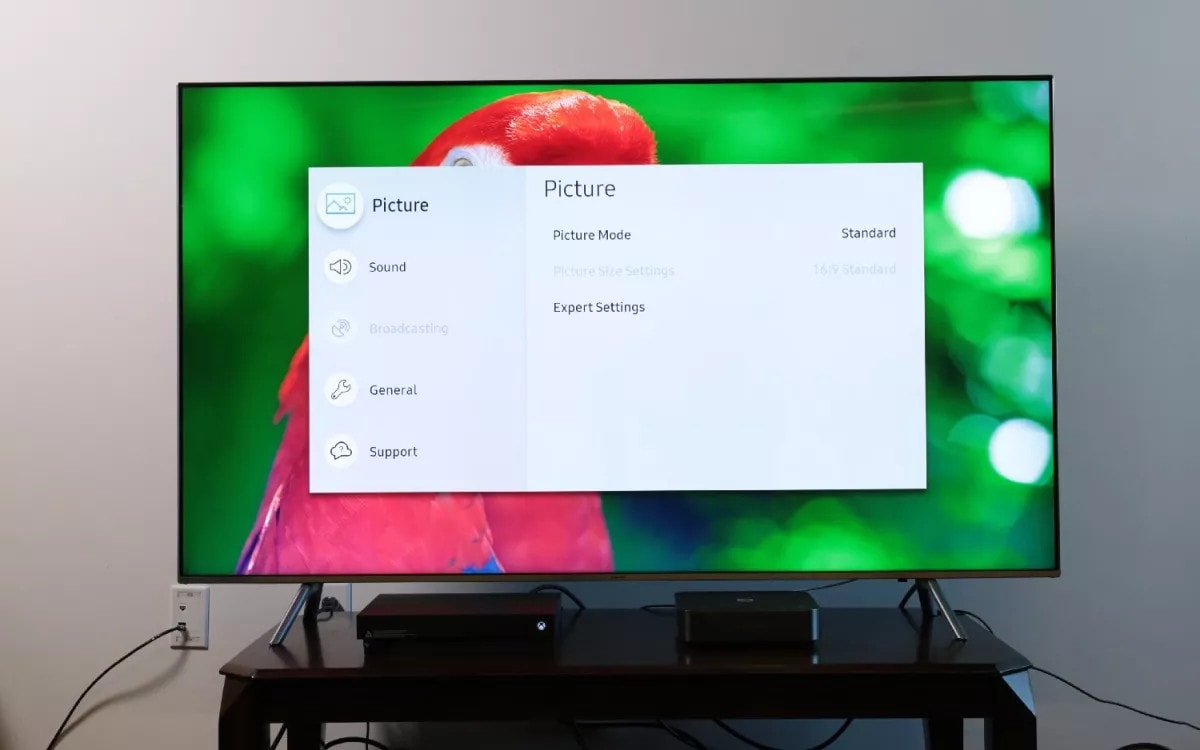
Step7 Turn ON HDR+ Mode. Once you do so, you’ll. be able to watch the HDR video you created on your TV. It doesn’t come easier than this.
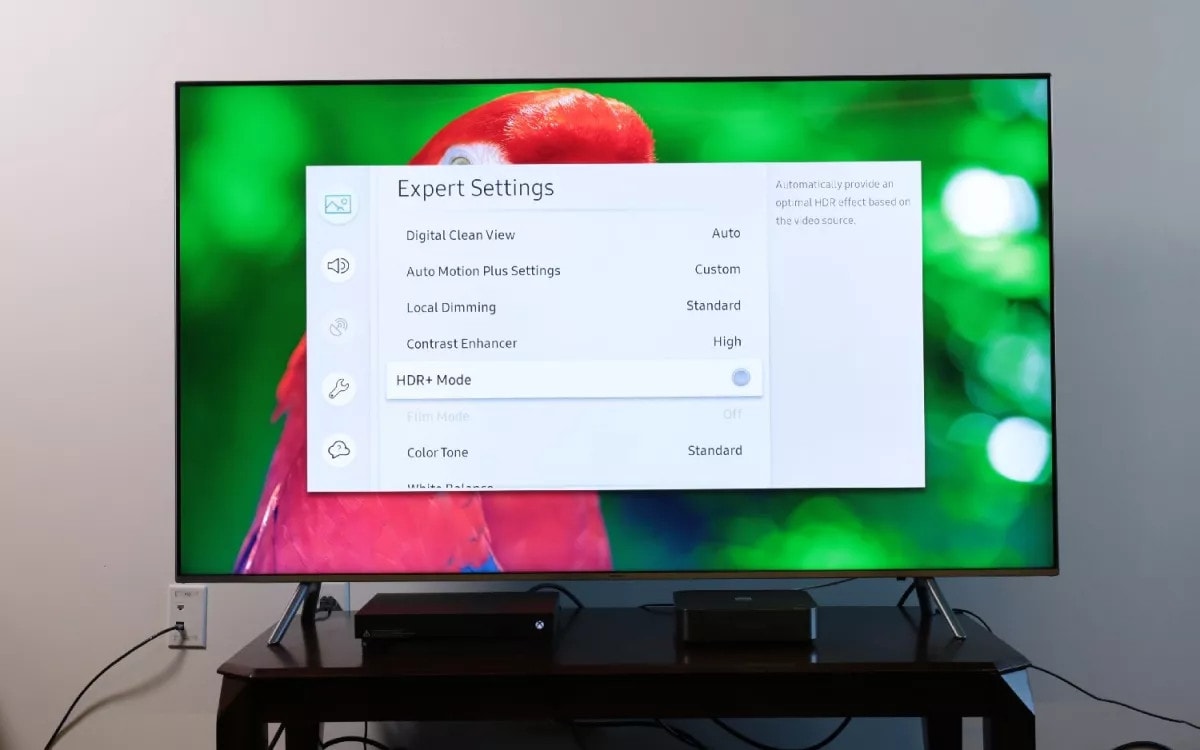
I think an extra step for how to display the created HDR video on Quantum HDR TV is needed
Conclusion
All essential information anyone could want to know about Quantum HDR has been discussed on this page. Perhaps you’re looking to purchase a TV with a Quantum HDR screen, this article has explained things you need to know about the effect of such technology on TV screens and how it could affect its image quality. Also, if you want to create and display HDR videos on your Quantum HDR TV screen, the only way to do that is by utilizing the Filmora video editing tool to execute such a task smoothly.
Part 4: How to Make and Display Your HDR Video on Quantum HDR TV?
Truth be told, your TV won’t be able to use HDR unless you’re watching HDR-ready media - It needs a source. In this case, you need the Filmora video editor to create HDR video and display it on your TV.
You might ask, ‘What is Filmora?’ Filmora is a simple editing tool that supports all essential video editing tools that video creators can always employ not just to edit videos but also to create HDR videos and display them on Quantum HDR TV.
Filmora boasts over 900 in-built video effects, AI portraits, Chroma key, Mask, and lots more that ticks boxes all around. Besides, there are also features like Auto Synchronization, Audio Ducking, and Noise Detection to help you edit the audio aspect of your HDR videos.
Free Download For Win 7 or later(64-bit)
Free Download For macOS 10.14 or later
Key Features
- Supports a wide range of audio and video editing functionalities.
- Easily align video and audio captured with different cameras in the same scene automatically.
- Apply color correction settings in different scenes with just one click.
- Create attractive HDR videos with high-quality built-in plugin effects like AI Portrait, NewBlueFX, Filmstock, and Boris FX.
Part 5: Stepwise guide to Create and Display Your HDR Video on Quantum HDR TV using Filmora
Make sure you download and install Filmora video editing software on your computer from the official website before proceeding with the steps.
Step1 Start Filmora Program. Once you start the Filmora program on your computer, click on ‘New Project’ from the main interface, then under ‘Select Project Aspect Ratio’ click the drop-down icon and select the preferred aspect ratio for your HDR video.
Step2 Import HDR Video . Now upload HDR video to Filmora by clicking on ‘Import’ from the top left corner of your screen.

Step3 Edit HDR Video. Next, you need to click on ‘Register’. Then edit the uploaded HDR videos as oed requirements. You can cut, trim, apply of effects, apply sound, etc.

Step4 Share & Export Edited HDR Video
After you’ve completed the video editing task, locate the Export option and click on it > from the pop-up, select the output format, Quality, and edit other settings of your video. to store your video.

Also, click the ‘Export Color Space’ drop/down icon to change HDR video output quality (default quality is SDR - Rec.709). Then click on the ‘OK’ button once you’re done to finalize the operation.

Step5 Now, to watch the HDR video on your Quantum HDR TV, just turn ON your TV and go to ‘Settings’.
Step6 Under settings, find ‘Picture’ and select ‘Expert Settings’.

Step7 Turn ON HDR+ Mode. Once you do so, you’ll. be able to watch the HDR video you created on your TV. It doesn’t come easier than this.

I think an extra step for how to display the created HDR video on Quantum HDR TV is needed
Conclusion
All essential information anyone could want to know about Quantum HDR has been discussed on this page. Perhaps you’re looking to purchase a TV with a Quantum HDR screen, this article has explained things you need to know about the effect of such technology on TV screens and how it could affect its image quality. Also, if you want to create and display HDR videos on your Quantum HDR TV screen, the only way to do that is by utilizing the Filmora video editing tool to execute such a task smoothly.
Also read:
- [New] Master Audio on Chrome Selecting the Best Web-Based Speech Modifiers
- [Updated] 10 Kid-Friendly Drone Recommendations
- [Updated] Hand Tracking Explained Types and Applications
- [Updated] In 2024, Perfect Proportions for Professional Videos
- [Updated] The Finest 8 Platforms for Sharing 3D Text PSD Files
- 2024 Approved Conquering the Flaws of Windows 11 Photo App
- Accelerating PPT Video Engagement Rates for 2024
- Best Pricing in the Cloud? Unveil Your Options Here
- Catch or Beat Sleeping Snorlax on Pokemon Go For Tecno Phantom V Fold | Dr.fone
- Destiny 2 Server Connectivity Problems? Here's How You Can Overcome Them
- Easy Steps to Lowering Volume Slightly in Logic Pro
- Eliminate Sensitive Files on Your iOS Device: The Best Software for Complete Data Wipe-Out
- Exclusive List 10 Budget-Friendly Passport Photographers Online
- In 2024, Stepping Up Your Gaming Stream with Steam Capture
- Navigating Spotify Error 4 in Windows 11 Environments
- Reliving Fun The VHS Era of 'Goof Troop' Comedy
- The Ultimate Gopro Feature List Matchup
- Top 5 Tactics From Experts A Journey of Online Brand Growth
- Top 8 Subtitle Editors Transforming Into SRT Format for Windows & MacOS
- Title: Inside the Secrets of Quantum HDR Photography
- Author: Paul
- Created at : 2024-11-15 18:35:59
- Updated at : 2024-11-21 22:22:10
- Link: https://extra-information.techidaily.com/inside-the-secrets-of-quantum-hdr-photography/
- License: This work is licensed under CC BY-NC-SA 4.0.